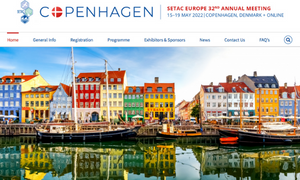

Almost 20 years after the first strategic approach to chemicals management, the EU has charted a new long-term vision for the EU’s chemical policy. In line with the European Green Deal, the so-called Chemicals Strategy for Sustainability strives for an environment, where chemicals are produced and used in a way that maximises their contribution to society, including achieving the green and digital transition, while avoiding harm to the planet and to current and future generations. The Chemicals Strategy for Sustainability covers the complete lifecycle of a chemical. This includes the design of less hazardous substances and remediation options to remove chemical pollutants that pose a risk to humans and the environment. We believe SETAC and all its members play an important role in building the comprehensive knowledge base to support the evidence-based policy necessary for the Chemical Strategy for Sustainability to reach its goals. SETAC can, as the largest European society of environmental researchers and risk assessors, with members spread across academia, industry and regulation, bring forward new knowledge and in depth scientific discussions on important topics related to the CSS, assessing questions such as: What makes a compound sustainable and low risk? How do we develop life cycle assessments to compare different chemical strategies? How can we develop effect directed analysis to identify the chemicals contributing to risk? How do we define, measure, risk assess and remediate persistent, mobile and toxic chemicals and chemicals occurring in complex mixtures of congeners, isomers and a wide array of more or less toxic metabolites? Just to mention a few of the many relevant and urgent topics, where our science can support policy and a Chemical Strategy for Sustainability. We therefore wish the SETAC Europe 32nd Annual Meeting in Copenhagen to take place in a constructive discussion on how we can all contribute to move towards a reduced pollution society, while still combatting the challenges of climate change and the necessary green transition.
The scientific programme consists of 75 sessions categorised in 8 thematic tracks.
– To support the development of principles and practices for protection, enhancement and management of sustainable environmental quality and ecosystem integrity;
– To encourage interactions among environmental scientists and disseminate information on environmental toxicology and chemistry; and
– To provide a forum for communication among professionals in government, business, academia, and other segments of the environmental science community and for the protection and welfare of the general public.
SETAC is a not-for-profit, worldwide professional organization comprised of about 5,300 individuals and institutions in over 90 countries dedicated to the study, analysis and solution of environmental problems, the management and regulation of natural resources, research and development, and environmental education. Our mission is to support the development of principles and practices for protection, enhancement and management of sustainable environmental quality and ecosystem integrity.